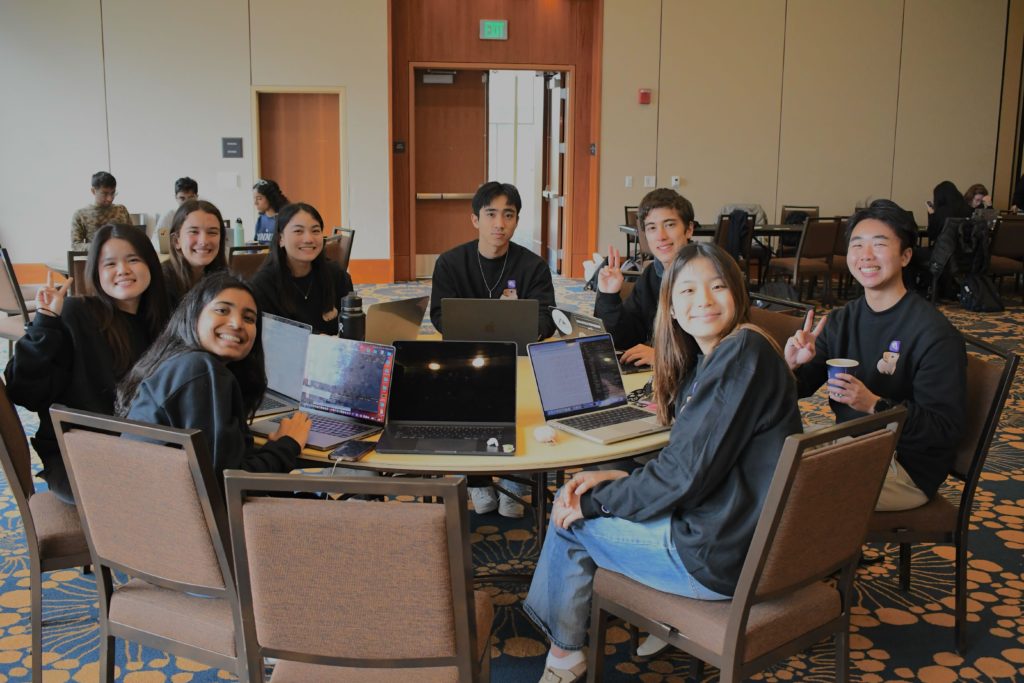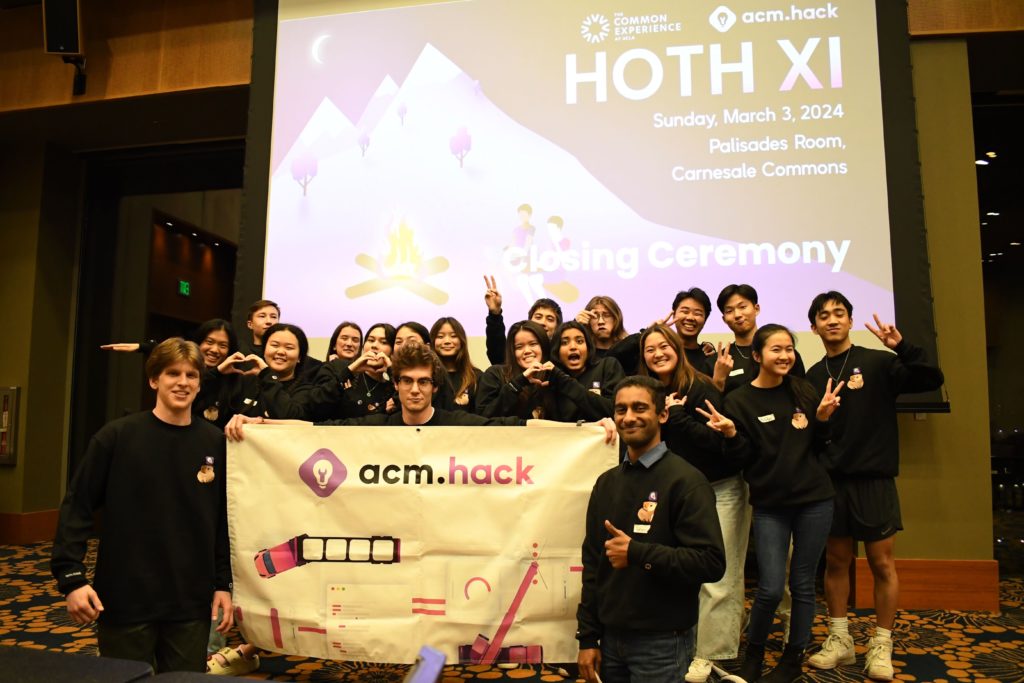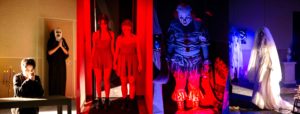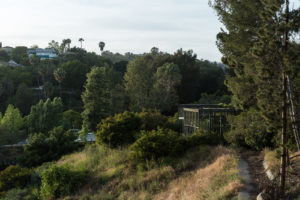Tick, tock.
A vigorously typing student scrambled to put the finishing touches on their code.
Tick, tock.
Another student rushed to the judges’ table, frantically gesturing towards their screen.
And – ding.
As the clock struck 9 p.m., more than 100 students lifted their hands off of their keyboards as Hack on the Hill XI drew to a close. The annual event – which started at 8 a.m. on March 3 – was hosted by the Association for Computer Machinery at UCLA’s Hack committee in conjunction with UCLA Residential Life, and it centered around the theme of intersections, such as how social justice and environmentalism are connected.
A hackathon, a combination of the words “hack” and “marathon,” is an event where people engage in rapid product development to hone their programming skills, collaborate with others and try to create a helpful product.
Jakob Reinwald, a fourth-year computer science student who helped organize the event, said he wanted to emphasize the event’s accessibility in comparison to other hackathons. For example, he said hackers had the chance to receive mentorship from ACM Hack officers.
“This is a beginner-friendly hackathon,” Reinwald said. “We really want people to just come with an idea and a work ethic and put something together.”
Melina Eftekhari, a first-year computer science student, said Hack on the Hill was the first hackathon she had ever participated in.
“I’ve never coded for 12 hours straight, so it’s a different experience,” she said. “It’s also kind of a vibe.”
Alumnus Eugene Lo, a software engineer at Google and former president of ACM Hack, also came to the event to talk about his career path from interning at Amazon to later being a project lead for an app promoting ethical food consumption.

Jack Deye, a first-year pre-mathematics of computation student participating in the hackathon, said he liked the creative atmosphere of the event as well as the chance to receive support from experienced people, including those with doctoral degrees.
Around 30 teams participated in the competition. Deye said he and his team worked on an application to help homeowners combat monocultures, which is when a single kind of plant grows on their lawns.
This kind of growth is ecologically undesirable because it has negative consequences, including requiring pesticides and increasing runoff, he added.
“A lot of people don’t know what grasses or shrubs or plants are native to their area,” Deye said. “Our website is going to (let) you input your zip code. It gets information from a database of what plants are native to your specific area.”
While Deye’s group focused on sustainability, others sought to create products that cater directly to students on campus. Third-year computer science student Marco Rovell said his team wanted to create a Yelp-like list of study spots around Los Angeles.
“We’re building an application that students would be able to use to coordinate where they could study,” Rovell said. “Students would be able to upvote on the places they’ve liked.”
Rovell said it can be grueling to stay motivated throughout the entire hackathon. The time limit also meant that participants had to be constantly thinking and working, he said.
At the end of the day, six winning teams were awarded in various categories, from best overall to best in intersectional environmentalism. Winners were awarded hammocks and chargers, in line with the environmental theme, along with Amazon gift cards.

Deye said the event allowed him to see technology and coding in a broader social context.
“It forces you to change your perspective,” Deye said. “Events like these show that there’s more; you get a degree to help people, not to just get a degree.”






Comments are closed.